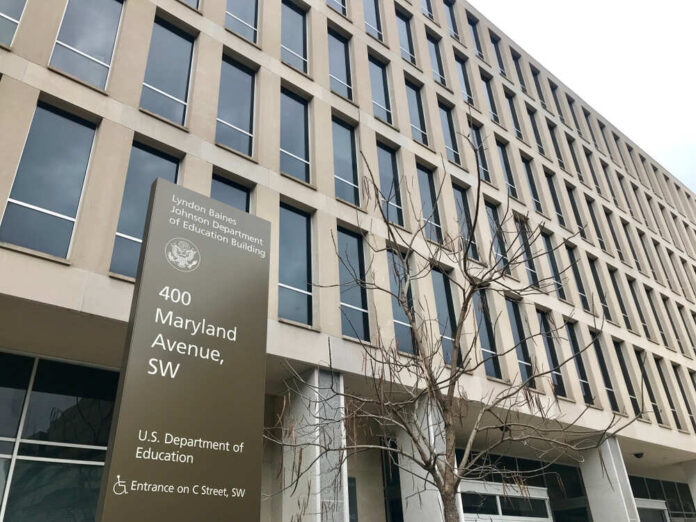
The Biden White House continues to chip away at the Trump administration’s agenda at every turn, most recently set its sights on a policy meant to protect faith-based organizations at the nation’s universities.
Former President Donald Trump signed an executive order in 2019 that aimed to prohibit such institutions from restricting the free expression of religious groups on campus. The following year, a policy went into effect that withdrew federal funding from universities that limit the activities of such student-led organizations.
“Under the guise of speech codes and safe spaces and trigger warnings, these universities have tried to restrict free thought, impose total conformity and shut down the voices of great young Americans,” Trump said at the signing ceremony, adding: “Taxpayer dollars should not subsidize anti-First Amendment institutions.”
https://www.youtube.com/live/KJExbV5WtjU?feature=share
Then-Education Secretary Betsy DeVos added her support to the effort, asserting in 2020 that students “should not be forced to choose between their faith and their education, and an institution controlled by a religious organization should not have to sacrifice its religious beliefs to participate in Department grants and programs.”
The rule attracted support from groups representing various religious views, including the Christian organization InterVarsity Fellowship. As Greg Jao, a spokesperson for the group, said at the time: “Universities should welcome all religious groups equally, in order to encourage tolerance, pluralism and religious diversity.”
Of course, the move attracted some initial backlash — and now the Biden administration’s Department of Education is taking action to repeal the policy.
The so-called “Free Inquiry Rule,” issued by then-Education Secretary Betsy DeVos in November 2020, exempted campus religious groups from nondiscrimination rules observed by other college and university organizations, critics charged. https://t.co/xsqJRd52hF
— The Washington Times (@WashTimes) August 20, 2021
In a recent announcement, the agency determined that “it is not necessary in order to protect the First Amendment right to free speech and free exercise of religion given existing legal protections, it has caused confusion about schools’ nondiscrimination requirements, and it prescribed a novel and unduly burdensome role for the Department in investigation allegations regarding public institutions’ treatment of religious student organizations.”
Furthermore, the department asserted that it had “not seen evidence that the regulation has provided meaningfully increased protection for religious student organizations beyond the robust First Amendment protections that already exist, much less that it has been necessary to ensure they are able to organize and operate on campus.”
In light of the Education Department’s findings, the matter is now open for a 30-day public comment period during which supporters and opponents of the policy can share their opinions.














